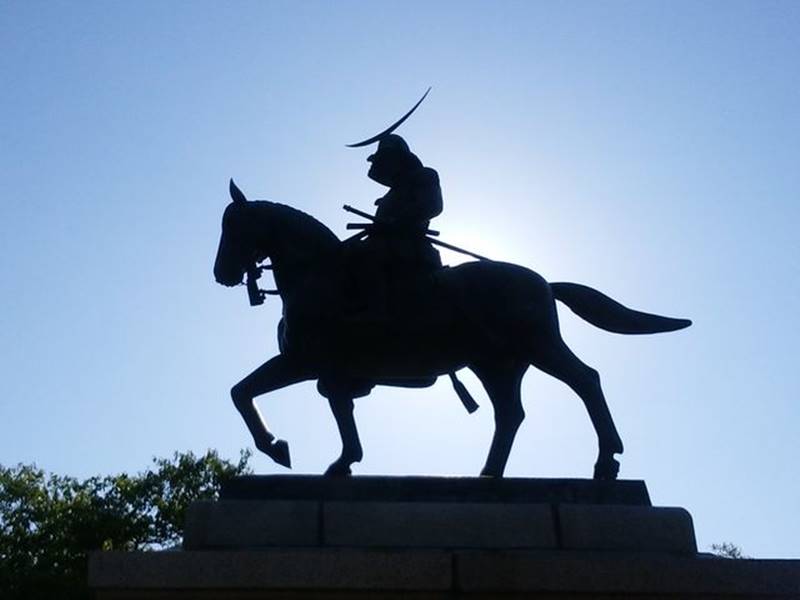This is all about Sendai Castle you want to know.
Every information you get on this site will be from a credible source based on Japanese history (books for reference).
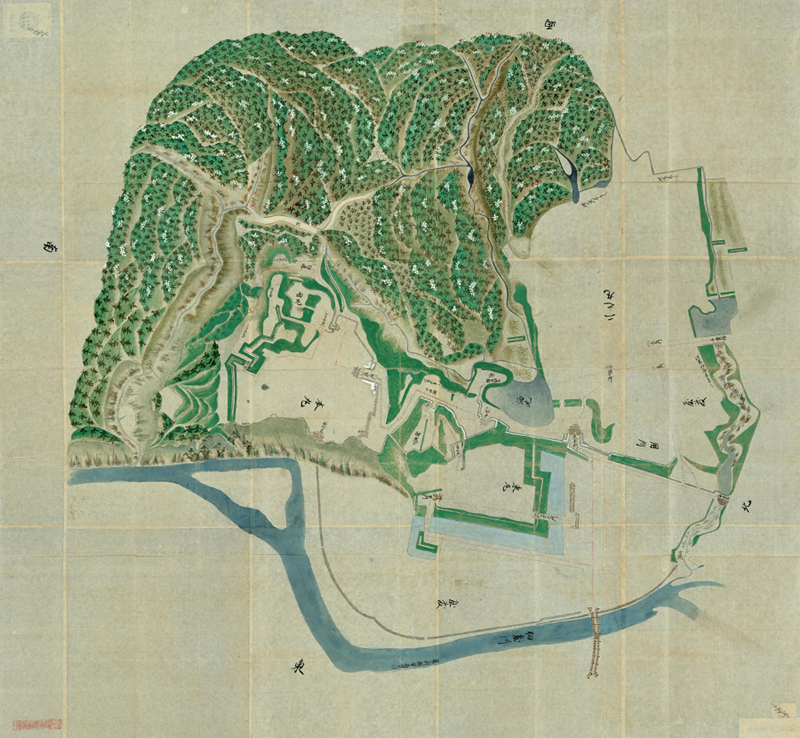
Collected by the Inagaki family, the Toba Daimyō from the mid-Edo period to the Meiji Restoration, as materials for military studies. There are about 350 illustrations, but there is no uniformity because only illustrations of castles, illustrations including castle towns, and old battlefield illustrations are mixed.
Another typical example of a castle picture in the Edo period is "The Shōhō Shiroezu", picture of the castle and castle town that the Edo Shogunate ordered the daimyō to create and submit,aggregating military information such as the buildings inside the castle, the height of the stone wall, the width of the moat and the water depth, etc., it also details the location and shape of the castle town and the mountain river.
Profile : Sendai Castle Ruins
| Location | Sendai City, Miyagi Prefecture |
| Also known as | Aoba Castle |
| Type of castle | Hilltop |
| Mountain's name | Mt.Aoba |
| Elevation | 203m |
| Condition | Ruins No main keep but other buildings |
| Designation | National Historic Sites |
| Year built | 1601 |
| Abolished | 1871 |
| Castle lord | Date Masamune |
| Refurbishment lord | Date Tadamune |
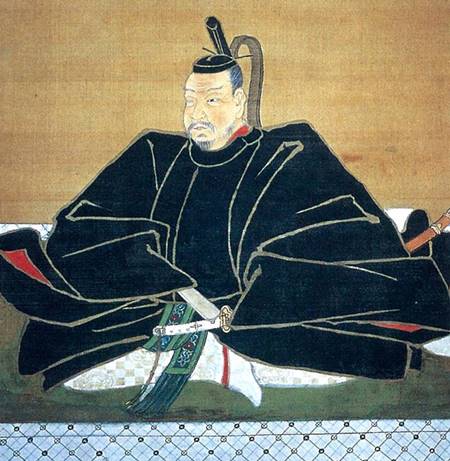
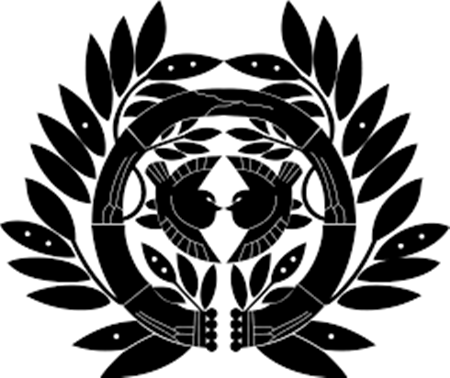
The family crest was originally created from the pattern that the emperor and the royal family put on the kimono, and the pattern was made into a fixed pattern, and the one attached to his own oxcart is said to be the beginning of the family crest. The warlords drew large crests on the flag-fingers, used to distinguish enemy views on the battlefield, and used by the generals to determine which warlords were active and how much.
Sendai Castle admission
admission fee : 700yen (Adult) 500yen(Above high school students) 300yen(Above elementary school students)
admission time :
(April 1-November 3) : am9-pm5
(November 4-March 31) : am9-pm4
closing period : open daily reference official site (japanese)
Sendai Castle Google Map
Sendai Castle Images
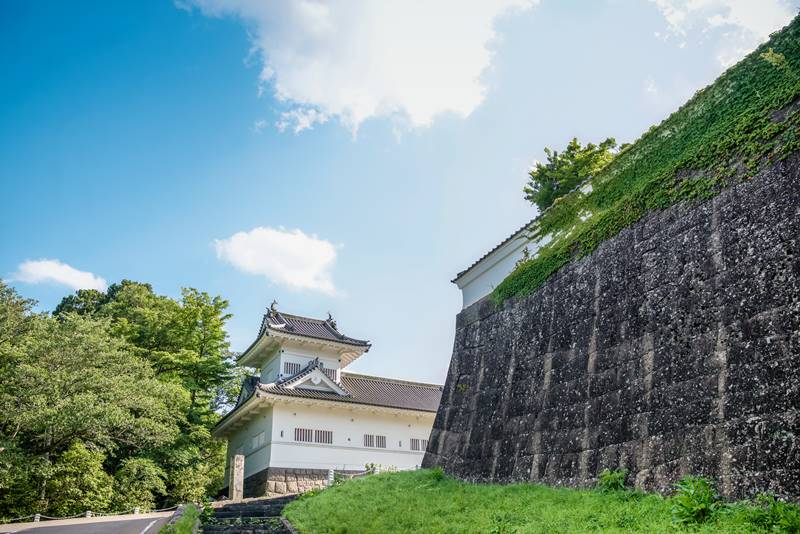
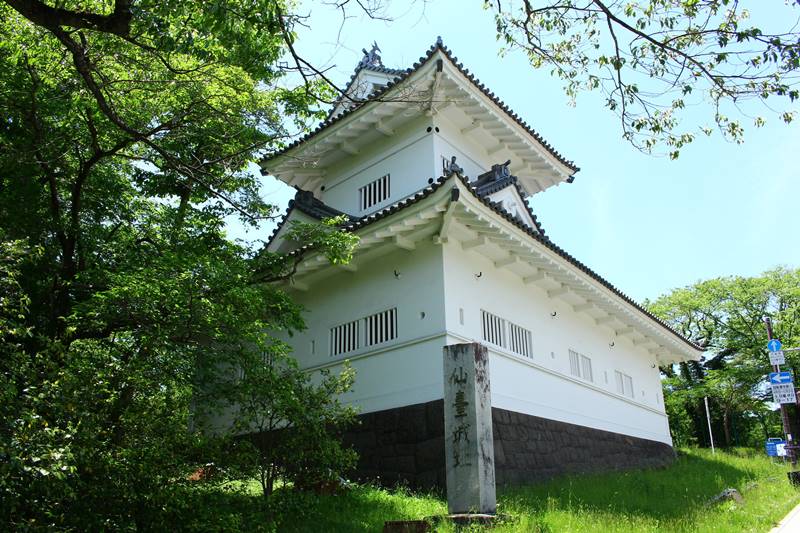
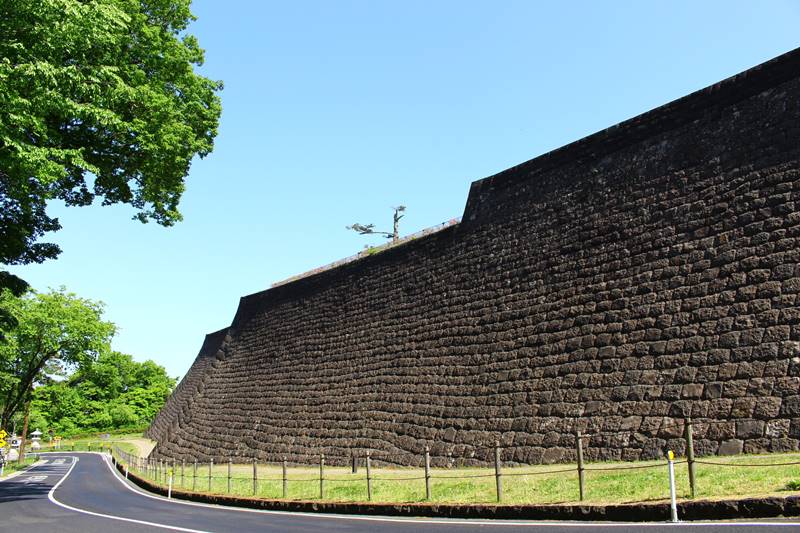
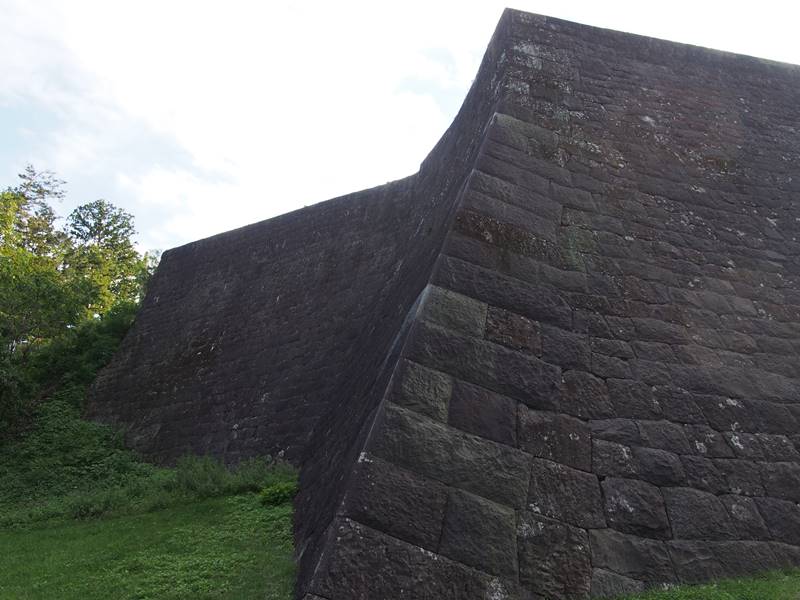
As you can see, the construction of this stone wall is solid and powerful. A pile of almost equal-sized stones stacked sideways is called a notched connection. It began to be used after early Edo period.
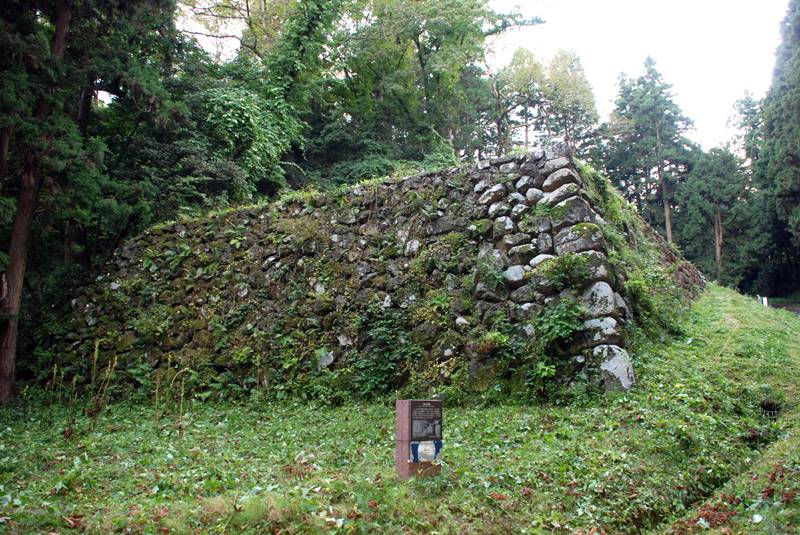
A stone used in its natural form or divided without further shaping. This type of wall is relatively weak and cannot build high walls. Also, with many scaffolds and railings, attackers can climb relatively easily.
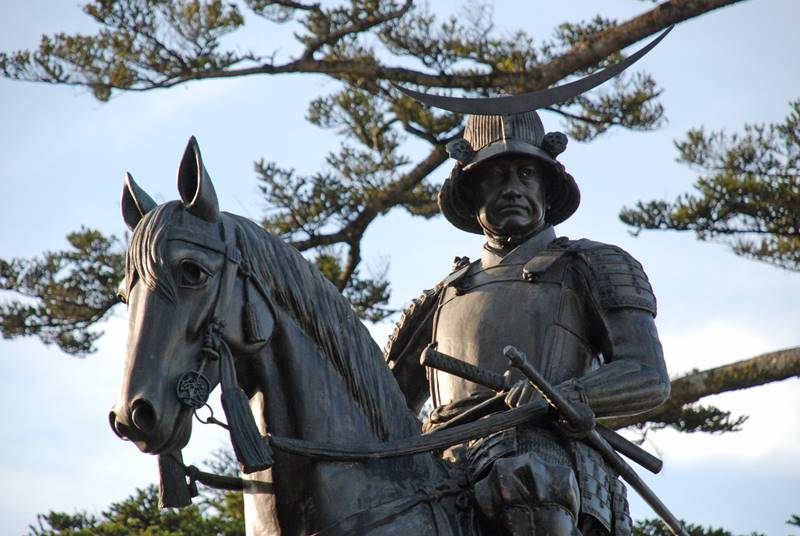
Another name "Dokuganryu Masamune" (means "One-eyed Dragon Masamune")
one of the most popular and intelligent Warlords of the Warring States Period in Japan.
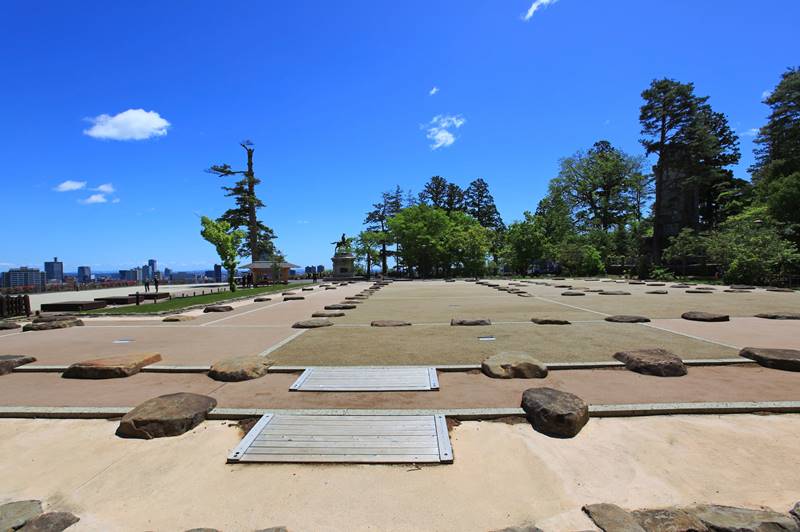
The main building of the Honmaru Palace and is said to have been called "Senjojiki" because of its size. Inside, there are many rooms, such as the "Upper Section", where the lords of the successive lords, such as Date Masamune, sit, as well as the "Peacock Room" and "Hinoki Room". Each room was decorated with luxurious barrier paintings and decorative hardware.
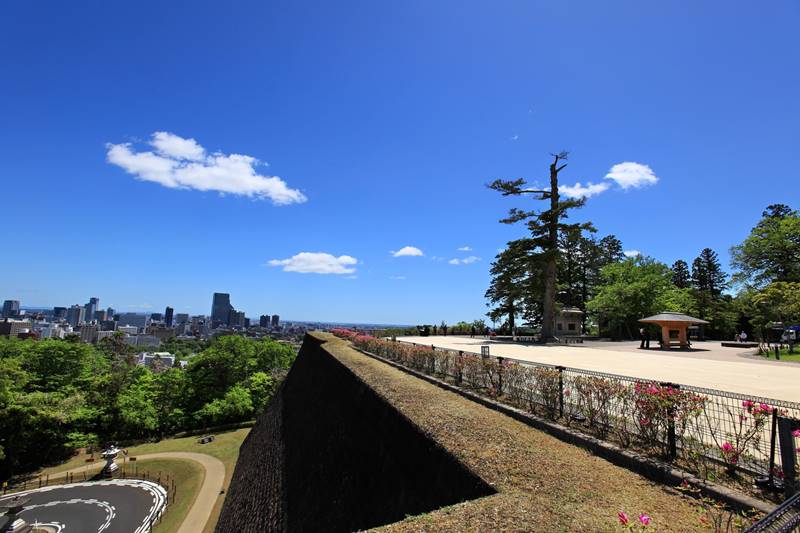
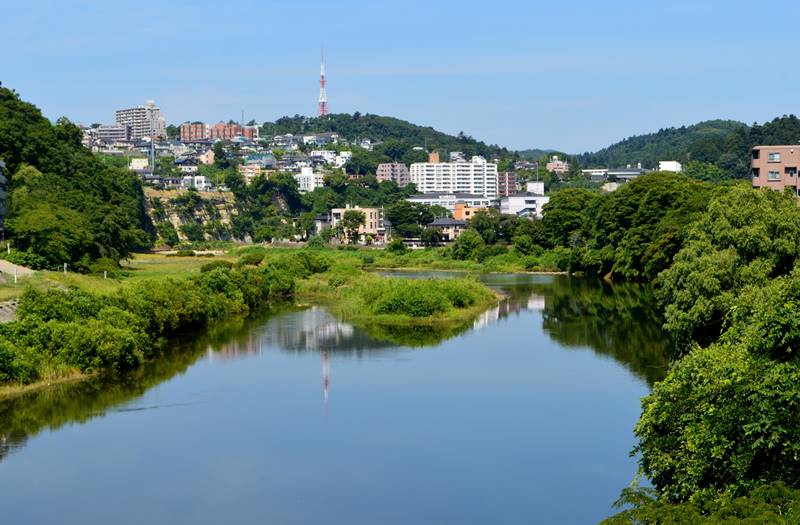
Sendai Castle Honmaru is located in a cliff that faces the Hirose River on the east side. During the feudal era, Date Masamune arranged the samurai residence of important vassals along a daimyo alley on the river bank terrace across the Hirose River from Sendai Castle. From the Honmaru of Sendai Castle, there is a height difference of about 80m to the riverbed, clearly showing the master-slave relationship between the palace and his ministry.
Link-1 : The castle of "knowledge warrior"
【central japan】Chihaya castle 【central japan】Ueda Castle 【central japan】Minowa Castle 【west japan】Uwajima castle 【north japan】Sendai Castle
Link-2 : A Castle closely related to [block]8[/block]
【north japan】Shiroishi Castle 【north japan】Yonezawa Castle 【north japan】Miharu Castle 【north japan】Sendai Castle
